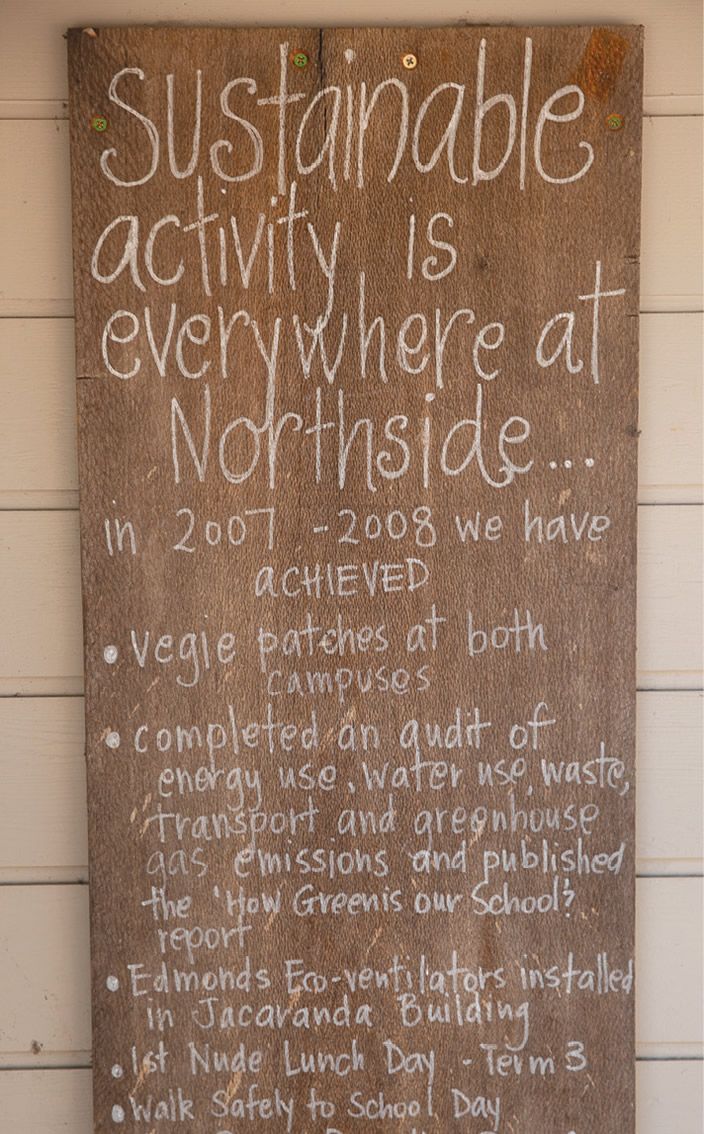
Environmental education is more than learning about the environment. It is about learning, journalist Angus Hoy writes.
By gaining knowledge of basic environmental concepts, students are equipped with the skills required for active and informed participation in managing the environment.
The IEU has a proud history of supporting education projects – through advice and funding – that bring school-based sustainable projects to life. For a number of years, the IEUA NSW/ACT Branch has facilitated the development and distribution of a sizeable grants program to members’ schools and early childhood education and care centres to assist them in creating inspiring environmental initiatives for their students and school communities.
There is no definitive list of possible activities, but typical projects include habitat conservation and biodiversity and tree planting, outdoor learning areas, vegetables in kitchen gardens, organic produce, water and energy saving, waste, recycling and composting projects and First Nations cultural projects.
The eligibility criteria include long-term viability of the project, a link to the broader environmental education strategy and effective management of the project.
Holy Family Primary School, Skennars Head: Koala Forest Project
Holy Family School was convinced by local Koala Rescue Coordinator Maria Mathes to create a koala tree forest of 800 trees on school wetlands, outside the school fence, which will contribute substantially to filling an urgent need for alternative koala habitats in the Ballina district. This project will also greatly enhance the natural beauty of the school environment and provide teachers and students with exciting opportunities for environmental learning.
St Joseph’s Primary School, Port Macquarie: Growing Minds
This project transformed an area of land into a flourishing outdoor classroom and food forest. Through integration of the two, the aim was to provide opportunities for students to learn new skills and make deeper connections to the world around them and content taught across the curriculum. The school engaged with
local professionals for assistance withdesign and modelling successful ecological practices.
Old Bar Community Preschool: Keen to be Green
This project built on the preschool’s recently established Garden Club to create learning opportunities for the children around caring for the environment. This project included re-establishing their worm gardens and commencing composting to embed sustainable practices for children into the future.
KU West Pymble Preschool: Solar-Powered Recycled Water Course for Play
This project provided for children to engage in water play without wasting a valuable resource, supporting a specific QIP goal to encouraging children to become environmentally responsible, minimise our environmental footprint and embed sustainable water saving initiatives into the program.
St Rose Catholic Primary School Collaroy Plateau: Air Bee and Bee
The focus of this project was inquiry-based learning around the role of pollinators. With the help of native bee experts, the project established a hive of native stingless bees, created bee hotels for solitary native bees and planted native flora, herbs and vegetables, designed to support the bees and ensure they thrive and in turn improve pollination rates. The end goal was the creation of a very rich, biodiverse environment where students can explore and learn about the role of nature in their lives.
Uniting St Luke’s Preschool, Belmont Park: War on Waste
The project launched with a War on Waste week to support more daily recycling with the children, by also providing the families with the opportunity to recycle goods through the preschool. The resources and practices from the project will support knowledge and understanding of sustainability and recycling.
Work in 2021
For 2021, the IEU has again pledged thousands of dollars in Environment Grants in support of worthy environmental education projects.
One standout project that the union has helped fund for 2021 is the Bush to Brunch to Books initiative being undertaken at Northside Montessori School. This is a program with a strong emphasis on environment studies, Indigenous studies, food technology, student initiated micro businesses, art and agriculture.
The project will involve close association with Kur-ing-gai Chase National Park rangers, Indigenous community members and input from students. It includes service learning with bush regeneration, building of native garden beds and orchards, cooking using school grown native produce and integration of environmental education into all subjects of the curriculum.
“We will integrate practical applications to study within all the key learning areas,” said Year 9-12 Director Margaret Kroeger.
“For example, we can extend student understanding of percentages and ratios in Mathematics when we mix and dilute natural fertilisers for our native orchard.
“As part of our study of mixtures and matter in Science, we can test the strength of resins from native trees in our orchard, including the pink flowered dough wood and the silver wattle.
“We can explore multiplication of fractions and financial mathematics by making and selling bush tucker treats from our Indigenous orchard and gardens.
“Learning will be meaningful, student -centred and hands on.”







































































































































